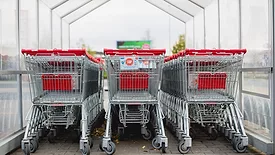Home » Keywords: » retail security
Items Tagged with 'retail security'
ARTICLES
Listen to Will Bernhjelm, Mall of America Vice President of Security, in this podcast episode.
Read More
EVENTS
Sponsored Webinar Solutions by Sector
12/11/25 to 12/11/26
Contact: Amy Jackson
Responding to Evolving Threats in Retail Environments
Sign-up to receive top management & result-driven techniques in the industry.
Join over 20,000+ industry leaders who receive our premium content.
SIGN UP TODAY!Copyright ©2026. All Rights Reserved BNP Media.
Design, CMS, Hosting & Web Development :: ePublishing













